For years, Laura Traxler, 35, called herself a lone wolf runner. A veteran half-marathoner, she always trained on her own and ran races solo.
If she had aches and pains, she’d try to fix them on her own.
It’s what plenty of runners do.
“People kind of think that they can fix themselves, especially if they’re athletic and they’ve always just said, ‘I’ll foam-roll and I’ll stretch and I’ll take care of it.’ And that was definitely me,” Traxler said.
A resident of Grand Rapids, Michigan, Traxler started running casually during her high school years in the Bay City area.
At first, she ran for physical fitness, but she’s stuck with it for nearly 20 years because of the mental benefits.
“I really found a love for it because of the meditative, therapeutic—you know, for mental health and stuff. I would run and just clear my mind,” she said.
“It just became part of my routine.”
When she entered her 30s, Traxler decided to trade her informal, solo approach to running for a more structured, team-based approach.
She applied for a spot on the Amway River Bank Run Road Warrior team. Team members, who agree to be event ambassadors, train with coaches as they prepare for the downtown Grand Rapids road race.
“I’ve always said I’m really good at strong-arming my races, you know, versus actually training and getting to be a solid runner,” Traxler said.
The team promised a training schedule, accountability and a sense of camaraderie.
“That’s what I wanted, because I never had that,” she said.
She made the team.
Because of the River Bank Run’s partnership with Spectrum Health, Road Warriors have access to fast-track appointments with the Spectrum Health sports medicine team.
For Traxler, that connection became the most meaningful part of the Road Warrior program.
Her training for this year’s River Bank Run built on more than two years of orthopedic treatment and physical therapy to heal from running-related hip and leg injuries.
Stress fracture
Traxler took a long and winding road to the 2021 event.
She first joined the Road Warrior team in preparation for the May 2019 race. Early in the training season, however, she felt pain in her hips and right leg.
Shrugging it off, she kept running—until the pain got too severe. That’s when she sought out Matthew Axtman, DO, an orthopedic sports medicine specialist with Spectrum Health.
“In that February-March time period, I was like, ‘I can’t run anymore, this is too painful. Something really bad is going on,’” she said.
Dr. Axtman ordered an MRI, which showed Traxler had a stress fracture in her right tibia, or shin bone.
He identified the culprit as overuse.
“Any time that you’re running or doing anything high impact, you’re going to get little microtraumas to the bone,” Dr. Axtman said.
These microtraumas are normal, but if they keep happening, the bone can develop a stress reaction—the bone swells and weakens. And if an athlete continues to run on a painful, weakened bone, it can break.
“She ended up having a stress fracture of the bone because she kept on running on it, ignored the symptoms a little bit and didn’t know exactly what was going on,” Dr. Axtman said.
To solve the problem, the doctor immobilized Traxler’s leg in a walker boot for six weeks, then referred her to physical therapy for six more weeks. By the time she could run again, the 2019 River Bank Run had passed.
Sidelined by the stress fracture, she kept her spot on the Road Warrior team for the May 2020 run.
“I had time to fully recover for 2020 and was fully ready to go. What a comeback, right?” she said, laughing. “And then, COVID hits.”
When the 2020 River Bank Run morphed into a virtual run, the 2020 Road Warriors team stayed on as the 2021 team, with the hope that the next annual run could take place in person.
“I think I’m the only Road Warrior who’s ever been on for three years,” Traxler said. “It’s a one-year program.”
Slow down to speed up
Traxler’s training in the intervening months hit a few snags—aches and pains caused by tight tendons and minor muscle imbalances.
This time around, she paid attention.
Instead of pushing through the pain, she worked with Dr. Axtman and her physical therapist. Together, they got her back on track and taught her what to watch for.
“Now it’s like, ‘Oh, I better get in there today … before it gets too bad.’ Because I’ve been there before,” she said.
“You need those professionals in your corner.”
That’s what the orthopedics team is there for, Dr. Axtman said—to get people “back to their normal function and normal activities that they enjoy doing.”
Since she’s still engaged in physical therapy for tight iliotibial bands, Traxler ran the 10K rather than the 25K in this year’s River Bank Run.
She’s learned not to take on more than her body is ready for.
“My younger self would push and get this 25K done,” she said. “But I think sometimes you have to slow down before you can speed up.”
She already has her sights set on the 2022 run, when she hopes to be back to full form.
“I truly think this is going to set me on a path where I get everything balanced, and then I’ll be my best running self.”

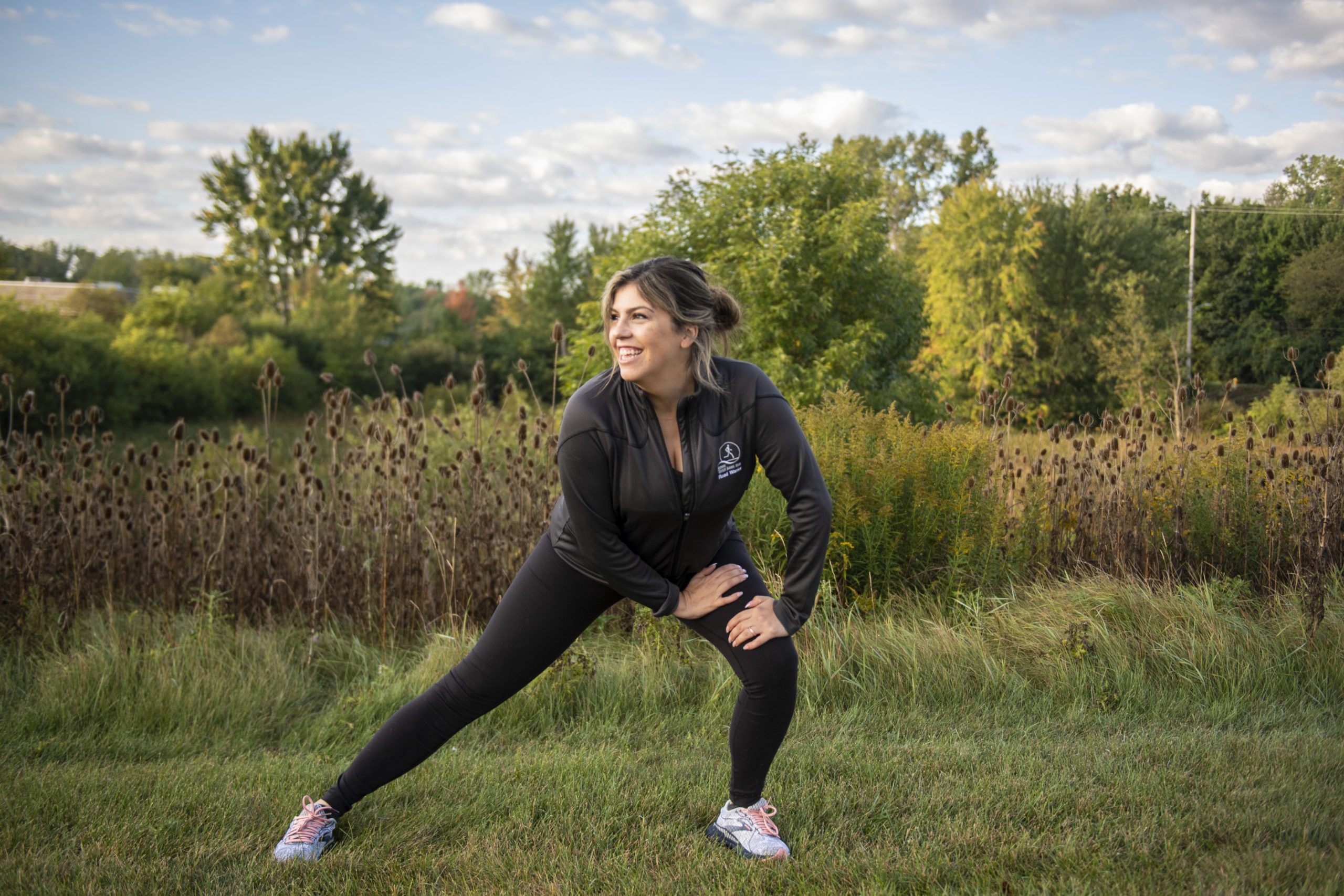
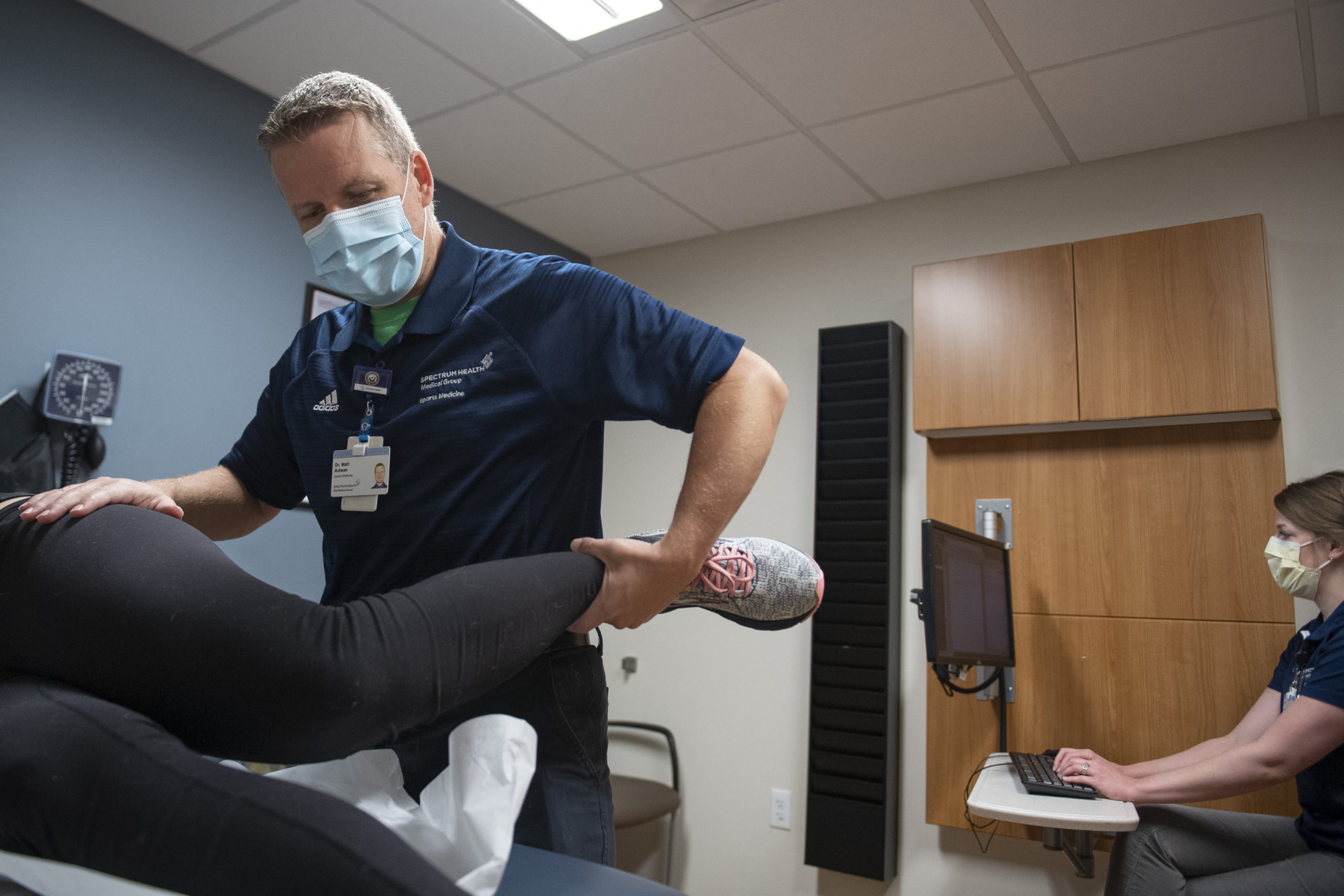

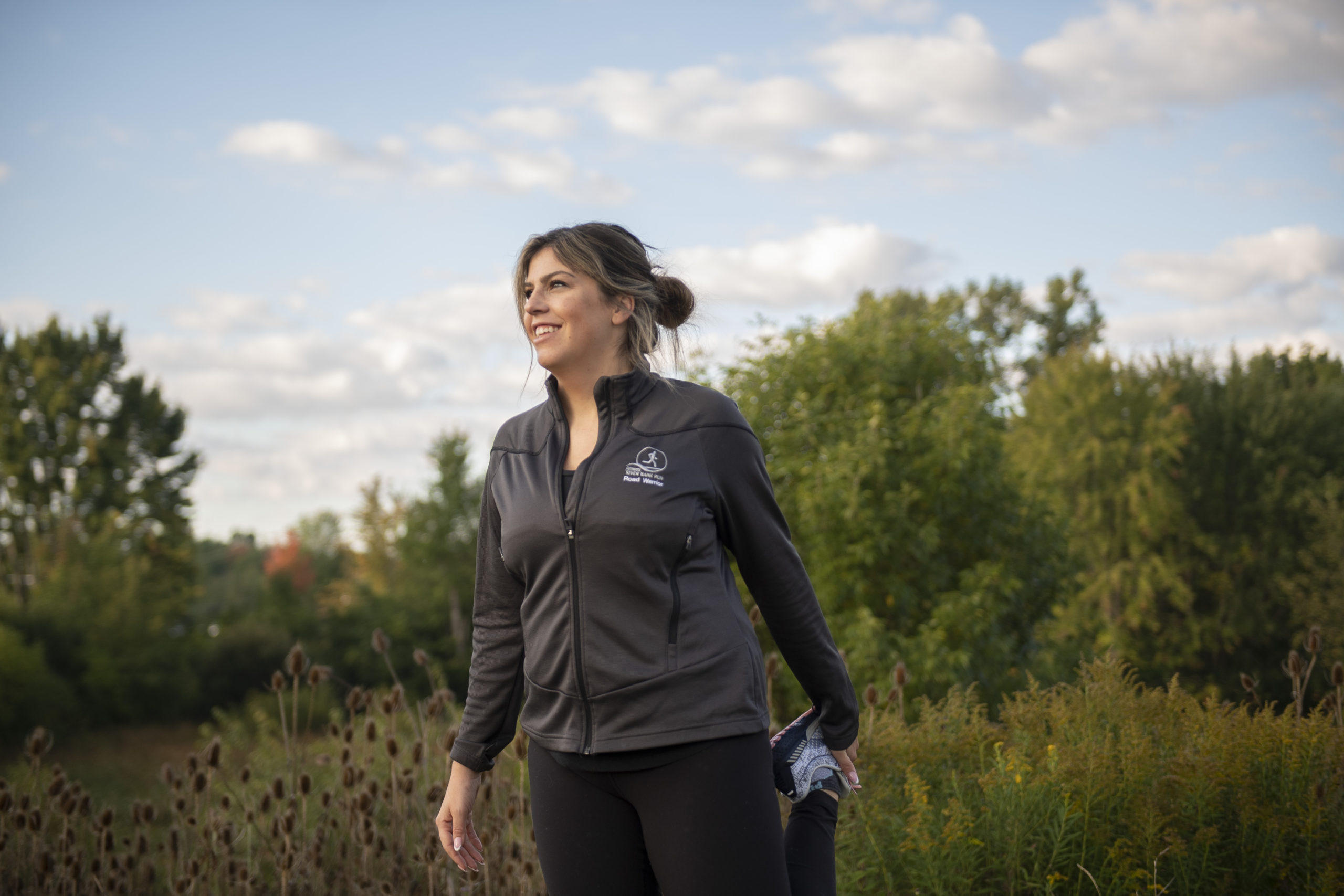

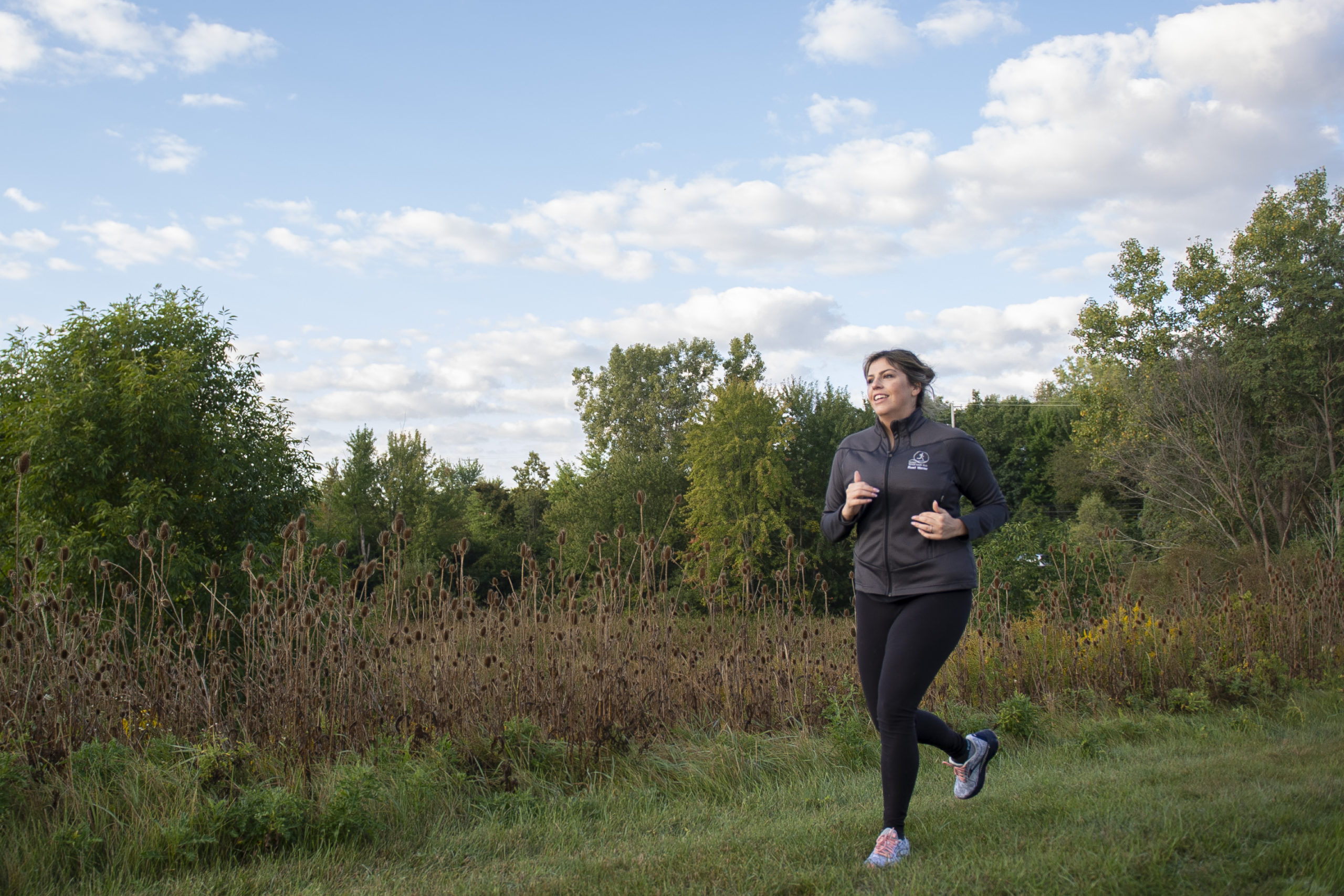

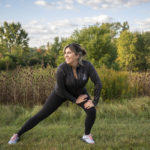
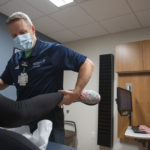
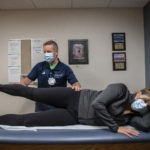
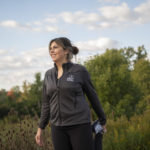

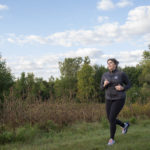
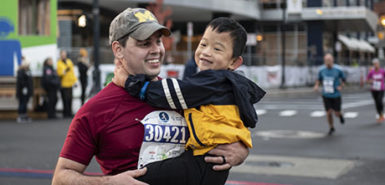 /a>
/a>
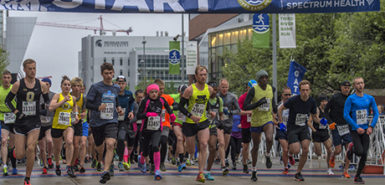 /a>
/a>
 /a>
/a>
My husband Cliff is also a Road Warrior and has been on the team since 2019 with you Laura.